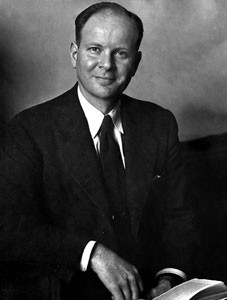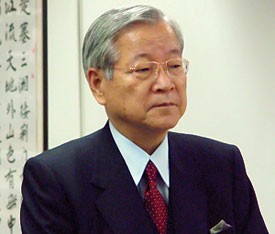Japanese legal studies at Columbia Law School has a rich history. The center is truly one of a kind. Founded in 1980, it is the first and only center focused on Japanese law in the United States.
Columbia, the first law school in the United States to offer courses in Japanese law, now has over 400 graduates--both Japanese and American--working in Japan as lawyers, academics, judges, and government officials. These Columbia graduates have been instrumental in reforming the judicial system and modernizing the practice of corporate law in Japan, reforms that are shaping the future of Japanese society.
The Center administers a wide range of programs and maintains extensive ties to Columbia’s Weatherhead East Asian Institute and the Business School’s Center on Japanese Economy and Business. Among the Center’s offerings are courses, faculty and student exchanges, support for Japanese scholars to visit Columbia, speaker series, and conferences in Tokyo.

Founded in 1980 with financial support from the Fuyo Group (a consortium of leading Japanese companies) and the Japan-U.S. Friendship Commission, the Center owes its existence to the vision and passion of Professor Walter Gellhorn ’31, the support of Isaac Shapiro ’56, and the assistance of Toshiro Nishimura ’64 M.C.L., who was instrumental in garnering support in Japan to establish the Center and the Fuyo Professor of Law Chair. Professor Gellhorn’s involvement with Japan started in the late 1950s, when he was invited to be a visiting law professor at the University of Tokyo ("Todai"). He also played an important role in securing funds to hire a Japanese specialist on the faculty.
Mr. Shapiro has often lent his expertise to nurturing Columbia’s Japanese initiatives. Before joining Skadden Arps, where he is now of counsel, he spent 30 years with Millbank, Tweed, whose Tokyo office he opened in 1977.
For the first 19 years of the Center’s existence, Professor Michael Young served as director, establishing the Law School as an important center in Japanese legal education. (Professor Young has gone on to serve as dean of George Washington Law School and is now president of Texas A&M.) Professor Curtis J. Milhaupt '89, who studied under Professor Young, was appointed the Fuyo Professor of Law and director of the Center in 1999 and continued in that role until 2017. Nobuhisa Ishizuka '86, succeeded Professor Milhaupt as director in 2018.
The Law School offers a course in Japanese Law and Legal Institutions and a seminar in Advanced Research in Japanese Law. The courses attract a mix of American J.D.s, Japanese LL.M.s (including lawyers, judges, and government officials), LL.M.s from other Asian countries, and students from Columbia’s School of International Public Affairs. The cross-section makes for lively discussions, drawing on many perspectives.

As a way to attract talented students to Columbia, the Center administers the Nagashima Ohno and Tsunematsu Scholarship Fund, made possible by the support of the Tokyo firm of the same name. The fellowship is the brainchild of Ken Tsunematsu ’63 M.C.L., a name partner in the firm. The fund provides scholarships to incoming students with a demonstrated interest in and professional commitment to Japan. For upper class students, the Center offers the Shapiro Fellowship in Japanese law, recipients of which engage in sustained research projects under the direction of Law School professors.
In addition to semester exchanges with Waseda University and Hitotsubashi University, the Center arranges for summer work for students in Japan. In recent years, between six and 10 rising 2Ls have worked in Japanese, American, and British firms in Tokyo, more than any other major law school.
Summer work opportunities also have been created by Morrison & Foerster, which established the Morrison & Foerster Summer Public Interest Fellowships in Japan. The fund provides stipends for up to three students to work in the courts, the bar association, or the ministries.
Faculty exchanges are also an important part of the Center’s programs, bringing professors from the University of Tokyo Faculty of Law to teach at Columbia and vice versa. The exchanges give students direct access to experts in Japanese law while providing the Japanese professors with exposure to the American educational system.
The information on this page was adapted from an article written by Katherine Towler, Contributing Editor.
